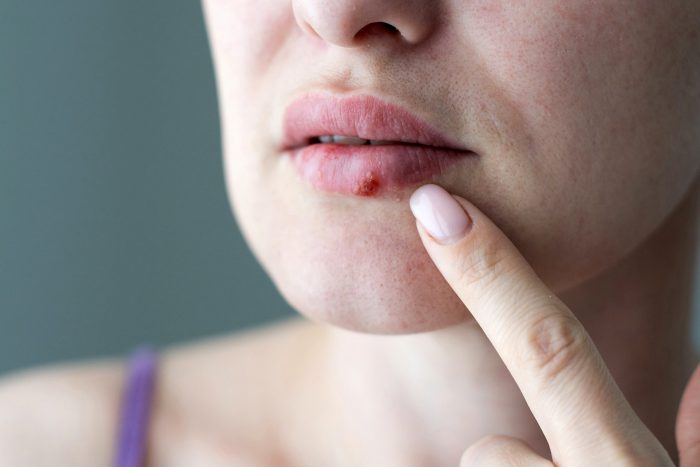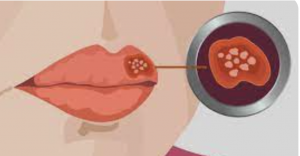
Human papillomavirus (HPV) is a common kind of sexually transmitted virus, and so is herpes. Unfortunately, many people confuse the two because of their similarities, making it difficult for them to know whether they have HPV or herpes.
For instance, a common symptom of HPV and herpes is genital lesions. But sometimes, there are no symptoms from either one. If you are fortunate enough to experience no symptoms, you likely won’t realize you have HPV or herpes until you receive a physical examination.
Most sexually active adults will contract HPV one time throughout their lives. But their immune systems typically eradicate the virus before it can cause health issues. However, don’t think you cannot acquire another virus simultaneously because you can. For instance, someone can have HPV and herpes at the same time. That is when things get even more confusing for the person.
Differentiating the Symptoms
The majority of adults with HPV will not experience any symptoms. That is why they can contract HPV without ever knowing.
Out of the 150+ HPV types in circulation, only a small number of them will cause someone to experience unwanted symptoms like warts. And in rarer cases, someone could develop cancer from their HPV.
Warts
Genital warts are a clear sign that something is wrong. The growths may appear individually, in clusters, or resemble a cauliflower. In addition to the genital region, warts may also grow in your throat and mouth. If that happens, it means you have oral HPV.
Herpes
The herpes simplex virus is defined as HSV-1 or HSV-2. They can cause you to develop herpes on your genitals, mouth, and throat. But you may be fortunate to experience little to no symptoms.
Mild symptoms can often be confused with other minor conditions like ingrown hairs, skin pimples, and the flu. But if you see unusual bumps around the throat, mouth, and lips, you probably have oral herpes. They will cause you to have symptoms like headaches, swollen lymph nodes, itching, pain, redness, painful blisters, and cold sores.
Genital herpes can cause many of the same symptoms, including headache, fever, swollen glands, burning, pain, itching, and red blisters. Additional symptoms, such as lower back pain, leg pain, and a painful burning sensation while urinating, may also follow.
Whether you have symptoms or not, make an appointment for a physical examination by your primary care physician. Then you can finally know if you have HPV, herpes, or another condition altogether.
Causes of Herpes and HPV
Herpes and HPV are sexually transmitted viruses after skin-to-skin contact involving the mouth, vagina, anus, or throat. You don’t have to touch an infected person for very long for either virus to be transmitted.
For instance, if you develop cold sores around your mouth or genitals, you may have contracted one of the herpes simplex viruses from kissing, sharing water bottles, or sharing lip balm. Oral sex is usually how genital herpes and HPV transmit from one partner to another.
It is rare for pregnant women to get HPV or herpes, but it can happen. What’s worse is that a pregnant woman could pass the virus down to her child. So if you received an HPV or herpes diagnosis before your pregnancy, let your doctor monitor your health closely until the baby is born.
Practice safe sex! It is the best way to prevent virus transmission and all the complicated symptoms that follow it.
Who is the Most Susceptible to the Viruses?
People engaging in unsafe sex have the highest risk of contracting herpes or HPV. Most will never know they had it because there are usually no symptoms. But if they have sex with healthy people, they can still transmit the viruses despite having no symptoms.
The majority of infected people can eradicate their viruses because of their healthy immune systems. However, those with weakened immune systems due to poor health or suppressive medications have the highest risk of severe symptoms.
Always be aware of your symptoms if they are present because infected people with active sores have a better chance of transmitting their virus to someone else.
Receive a Herpes or HPV Diagnosis
The best time to visit a primary care physician or healthcare professional is if you have had unprotected sex with someone new within the last two weeks. It doesn’t matter if you have lesions or not because your doctor must diagnose the virus for your sake and the sake of your sexual partners.
Make sure you get a pap smear to look for abnormal cell growth in your cervix, which could be a sign of early cervical cancer. The sooner you know about it, the sooner you can treat it before the symptoms worsen.
No blood test or physical screening can reveal HPV. That is why your doctor may not be able to give you an HPV diagnosis if you have no symptoms of genital warts. But if you have genital warts, they can use that as the basis for diagnosing you with HPV.
Doctors may be unable to diagnose HPV accurately, but they can diagnose herpes by determining if it’s HSV-1 or HSV-2. After taking a culture sample and analyzing the virus under a microscope more closely, the doctor can tell if it is HSV-1 or HSV-2. Then your doctor will recommend the most appropriate treatment.
Treatments for HPV
Most people don’t need treatment for HPV because they don’t experience any symptoms. Besides, the average person’s immune system can eradicate the virus from a person’s body, so they don’t usually need treatment to get rid of it.
Even occasional HPV-based genital wart growth will disappear on its own. But if genital warts don’t disappear, your doctor can prescribe medications to reduce the symptoms. Three common medications for treating HPV-based genital warts are imiquimod, podofilox, and sinecatechins.
Some doctors may recommend cryotherapy, bichloracetic acid, or trichloroacetic to eliminate warts. In more severe cases, the doctor may surgically remove warts without affecting the virus. You cannot stop the virus by removing the warts, but you can still reduce the symptoms. There are also HPV supplements that are very helpful in supporting the immune system in fighting the HPV infection.
Treatments for Herpes
Herpes has no cure. After contracting it, you’ll have to live with herpes for the rest of your life. The good news is that treatments exist to reduce symptoms and the risk of sexual transmission of the herpes virus.
Doctors will prescribe antiviral medications to stop outbreaks and eliminate symptoms. These medications include acyclovir, famciclovir, and valacyclovir. After that, all you can do is control the symptoms, which is worth doing to prevent discomfort.
HPV-Related Health Issues
Most infected people will get lucky because their immune systems will kill the HPV without any issues. Sadly, people with compromised or suppressed immune systems have the highest risk of developing HPV-based health problems and symptoms. The worst health problem or complication is developing cancer in the cervix, anus, vulva, vagina, or penis. Cervical cancer is the most common and can only be discovered with a pap smear test. Oral HPV is another health risk.
Cancer doesn’t happen overnight. An HPV-infected person may not get cancer for many years after contracting HPV, if at all. But if you happen to get infected with one of the few types of HPV that cause cancer, then you’ll have much more significant health problems to worry about treating.
Therefore, ensure you receive regular STI testing and HPV-causing cancer screenings. Then your doctor can diagnose any potential cancers before they grow and worsen.
Herpes-Related Health Issues
Herpes won’t go away, so you have to grow accustomed to dealing with its symptoms and health complications. They include urinary tract infections, bladder issues, swollen urethra, meningitis, rectal inflammation, or contracting other sexually transmitted infections.
Pregnant women must be careful to avoid getting herpes because the virus could cause blindness or brain damage to the unborn child. It can even kill the child too.
HPV Vaccines
Preventative care is always the best for dealing with HPV. That is why you should take it upon yourself to get the HPV vaccine because it’ll lower your risk of contracting a cancer-causing HPV strain.
HPV vaccines come in a series of two doses or three doses. It is critical to get all the doses of the series for the vaccine to maximize its effectiveness. According to the Centers for Disease Control, all 11 to 14-year-old children should get vaccinated with the two-dose vaccine. Both doses must be taken within the same year.
Anyone 15 to 45 should get the three-dose vaccine to ensure complete protection. Plus, request cervical cancer screenings regularly, especially if you’re a woman between 21 and 65. Then you can be aware of potential HPV-based health problems before they worsen.
Practice Safe Sex
Safe sex is the best method for avoiding all sexually transmitted infections like herpes and HPV. Some examples of safe sex techniques include the male wearing a condom during sex, getting tested regularly, asking sexual partners to get tested, and letting them know if you have an infection.
A condom reduces the risk of contracting sexually transmitted infections like herpes. However, a condom doesn’t provide absolute protection against infections and viruses. So if you have been diagnosed with HPV or herpes, talk to your past sexual partners about it to figure out who may have given it to you. More importantly, you can let them know the potential of transmitting the virus to them.
Talk to your doctor for clarification on how to practice safe sex and prevent the transmission of sexually transmitted infections, regardless of the symptoms present. They can monitor your health regularly to help keep you safe.
Conclusion
Herpes and HPV are similar in some ways. They can also cause a person to have no symptoms whatsoever.
There are no cures to eradicate herpes or HPV from the body. But with any luck, your immune system can suppress HPV on its own. Unfortunately, the same cannot be said for herpes because that will stay in your body for several years.
Whether you have been infected or not, you must learn the risks associated with herpes and HPV. Then you can take the proper precautions to prevent getting or transmitting the virus to someone else.
Only your doctor can guide you after an HPV diagnosis. Work with them regularly for treatment and a better path toward recovery.







